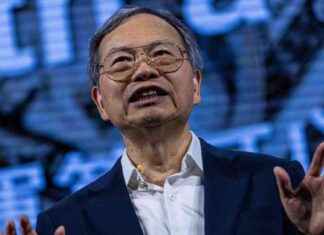Maryland U.S. Attorney Rod J. Rosenstein, who has been tapped by President Donald J. Trump to be second in command at the Justice Department, told city and state law enforcement leaders Wednesday that their job is to "instill fear in criminals" to deter crime.
Rosenstein said when he came to Baltimore 12 years ago, there was a perception that there were no consequences for crime. Pointing to a steady decrease in homicides and shootings, Rosenstein said authorities in Baltimore had driven down crime because they worked together, cut arrests and focused on violent repeat offenders.
"Obviously, something went dramatically wrong in 2015," Rosenstein said.
"None of us like sending people to prison. Unfortunately, that’s our job," he said. "We have to find a way to reassure honest, law-abiding people — but we do need to deter the criminals causing problems in our communities."
His remarks came in a presentation to the Baltimore Criminal Justice Coordinating Council, a monthly meeting of various city and state law enforcement leaders and related agencies.
Rosenstein has been tapped by the White House to be the top deputy to Trump’s nominee for attorney general, Sen. Jeff Sessions. Rosenstein will first need to be confirmed by the Senate.
Federal authorities have won indictments against 80 people, including corrections officers and inmates, in an alleged conspiracy to sneak heroin, cocaine, cellphones, pornography and other contraband into the Eastern Correctional Institution in Westover.
The largest federal indictment in Maryland…
Federal authorities have won indictments against 80 people, including corrections officers and inmates, in an alleged conspiracy to sneak heroin, cocaine, cellphones, pornography and other contraband into the Eastern Correctional Institution in Westover.
The largest federal indictment in Maryland…
Rosenstein said in his remarks that he believes Trump and Sessions are "committed to focusing on violent crime."
"I know most people in this room didn’t vote for the current president. It’s quite possible nobody in this room voted for the current president," Rosenstein said. "To me, this is not a political issue. This is about saving lives and making communities safe."
Rosenstein also touched on the current climate for police officers in Baltimore.
"We know the majority of them are trying to do the right thing under really difficult circumstances, and they do feel put upon, and they do feel underappreciated, and we need to make sure that while we’re in the process of reforming the department, they feel appreciated."
With the latest round of federal indictments against Maryland corrections officers, top law enforcement officials are again touting their efforts to root out corruption while facing questions over why such misconduct continues.
This week’s indictment of 80 people, including 18 corrections officers,…
With the latest round of federal indictments against Maryland corrections officers, top law enforcement officials are again touting their efforts to root out corruption while facing questions over why such misconduct continues.
This week’s indictment of 80 people, including 18 corrections officers,…
Trump has stirred controversy over remarks about violence in cities like Chicago, where he has threatened to "send in the feds" to combat continuing violence. In subsequent remarks, Trump said he would provide more federal resources if desired.
Rosenstein was appointed by President George W. Bush and is the longest-serving U.S. attorney in the country, having held his post since 2005. He was kept on by the Obama administration, winning praise from leaders of both parties.
Rosenstein declined after the meeting to elaborate about what he believes went wrong in the city in 2015 — the year that saw the death of Freddie Gray in police custody, as well as riots and a spike in violent crime.
He said during his remarks that when he first took the job as the top federal prosecutor, then-Police Commissioner Leonard Hamm told him that his job was to "instill fear" and that law enforcement’s job was to deter crime.
"It’s not everybody," he said. "If you can take out the people most harmful in the community, I think we can really have an impact."
jfenton@baltsun.com
Our editors found this article on this site using Google and regenerated it for our readers.





